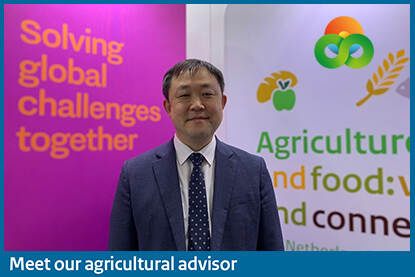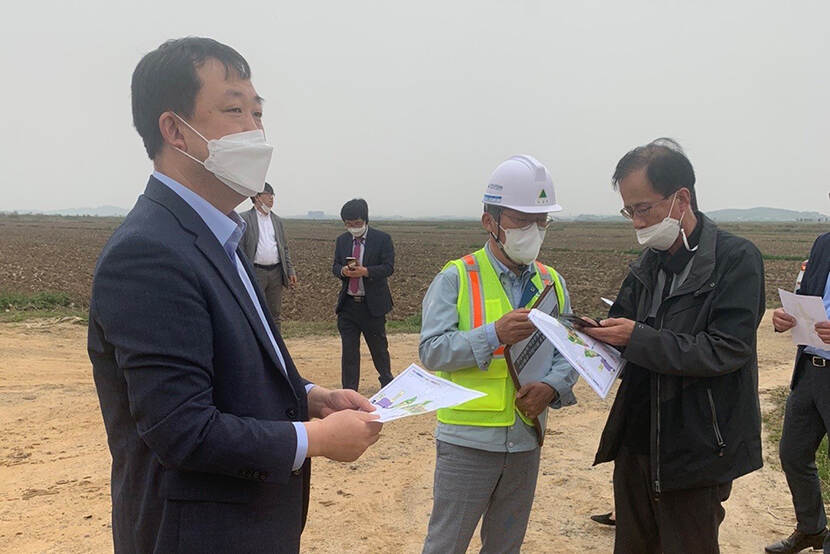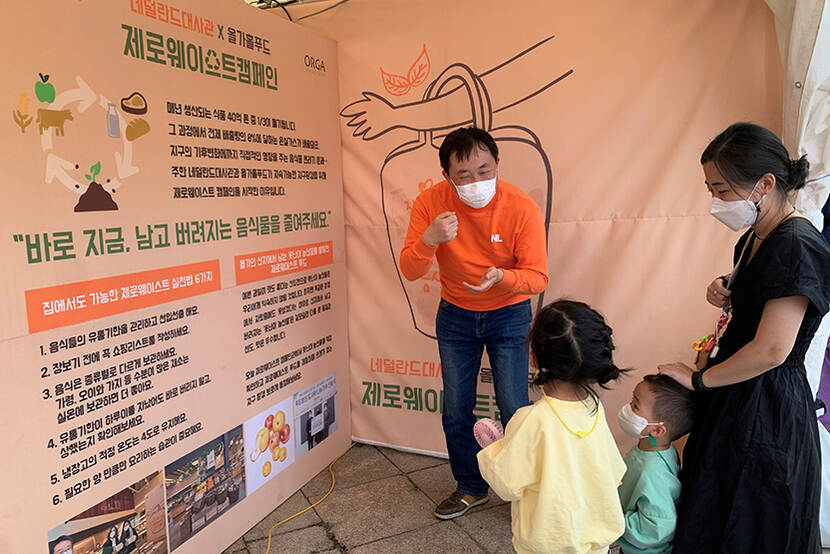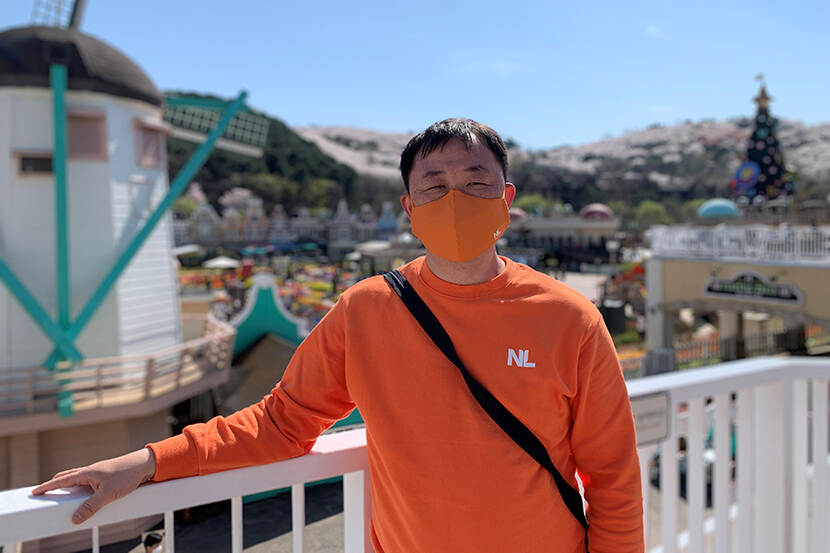'The role of the Netherlands in South-Korea is gaining importance'
South-Korea is a high-tech society. In a few decades, the country became the worldwide nr. 10 with a gross domestic product of $40.000 per person. Despite this, the agricultural sector is still underdeveloped. Dutch companies and knowledge institutions play an increasing role in developing the agricultural infrastructure, says Hojin Kang, agricultural advisor at the Netherlands embassy in Seoul. This article is part of a series on the agricultural advisors who play a key role in the Netherlands Agricultural Network (LAN) worldwide
The trade between the Netherlands and South-Korea is modest, but it has been increasing with 20% a year in the past few years. “Pork and milk powder are the main export products”, says Hojin. “Beer, cheese and flowers are also doing well. However, the focus on issues such as knowledge, technology and smart farming systems is even more important; emphasising the development of the Korean agricultural sector. South-Korea still has the reflex of protectionism, so in the agricultural team we work hard on promotion and market access.”

Hojin was born and raised in the province of Gangwon, in the middle of South-Korea. Gangwon is a popular, mountainous region. His father was a teacher, and grew vegetables and fruits as a hobby. “I have nature in my genes, and I decided to study animal science in Seoul. I like animals, and the topics of meat and animal husbandry. For my master’s I decided to focus on dairy, the more utilising side of cattle.”
After his studies, Hojin started working as a senior researcher at the Lotte R&D Centre, the first five years as alternative military service. Lotte is the largest food company in South-Korea, engaged in diverse industries such as confectionery manufacturing, beverages, fast food and retail. “R&D is particularly important for a big company. The focus was on health and functional food, like developing probiotics and yoghurts.”
'I like the Dutch mentality. The Dutch always say: why not? Koreans think let's do it ourselves'
How did you get the job as an agricultural advisor?
“After nine years of working at Lotte, I was approached by a head-hunter in 2008 for the position of agricultural advisor at the Dutch embassy in Seoul. They were searching for people from the business side. In South-Korea, the private sector leads, and the government follows. I applied and got the job. I will never forget my first trip to The Netherlands in 2008, for my first meeting with agricultural advisors. When I landed on Schiphol Airport, I got the message that my wife had given birth to our son, our second child.”
The agricultural team of South-Korea and Taiwan consists of Gelare Nader (agricultural counsellor), Hojin Kang (agricultural advisor) and Adriana Jung (policy officer) in Seoel for South Korea, and Wendy Liang (agricultural advisor) in Taipei for Taiwan.

Was it easy to switch from being researcher in the food business to a governmental job?
“I must admit it took me some years to grow into my new role. The first years, I learned to broaden my mind, to expand my network, and to support the counsellor. Then I got the role of communicator and mediator: connecting and matchmaking. The last five years I am a knowledge provider to Dutch companies and knowledge institutes. What is the policy in South-Korea, what are the regulations, what are good partners with whom to cooperate?
What I enjoy about my job is having a bigger picture of what is going on in the global agri-food sector. We can learn much from the Netherlands about taking initiatives and working together. I like the Dutch mentality. They always say: why not? We Koreans think let´s do it ourselves. I am working hard to make Korean people more open-minded.
I started farming as a hobby several years ago. I grow cucumbers, eggplants, potatoes, and fruits. I now understand how difficult it is to grow vegetables and fruits, and how much time and dedication it takes.”

What about themes like sustainability, biodiversity, and climate resilience? Big issues in The Netherlands and abroad…
“When I started this job, the focus in South-Korea was mainly on productivity, efficiency, and on increasing income. That was the case until 2019. Then I noticed a big switch in the private sector to the ESG themes: environment, social responsibility and governance. I see the same in our younger generation, which is wealthy and focused on quality above quantity. When I first got aware of themes like sustainability and climate resilience, I thought there was a cultural difference between western and Asian countries. But it just took some time before they became social and economic issues in South-Korea.”
Can the Netherlands play a role in these issues?
“Of course, it can! The role of the Netherlands is gaining importance. By example: due to climate change there are more harmful insects, and the first reflex is to use more chemicals to reduce them. We also have heavier rainfall during the rainy season, so it is getting more difficult to grow crops. The Dutch are helping to switch to indoor and greenhouse farming with climate control and thus less vulnerability to climate changes. Besides that, we can learn from the Dutch about things such as the efficient use of raw materials and input, and how we can scale up in agriculture in a sustainable way.”
Upcoming events in South-Korea
In June, we will make the Netherlands pavilion at Seoul Food Show to promote Dutch food products together with 7 Dutch companies and their Korean partners. And in the same month, we will organize a webinar and reception together with KOTRA to introduce Dutch hi-tech agriculture to Korean companies, on the occasion of Greentech taking place in Amsterdam.
In October, we will organize events such as seminar to celebrate the opening of Piet Oudolf’s garden at Ulsan city. In November, we will organize a horticultural mission to KIEMSTA (an agricultural machinery expo in Korea) for matchmaking of companies from both countries.
Did COVID-19 have a significant impact on South-Korea?
“Thanks to strict measures in an early stage, the impact was low. We were able to re-open society soon. The increasing costs of transportation and the lack of containers had a negative impact. Despite that, the trade continued to grow.”

And the war in Ukraine?
“That war has more impact than COVID-19 did. For about 80 to 90% of our corn, wheat and soya we depend on import, and the prices increased a lot. Feed prices using those grains have soared, and the prices of relevant livestock products such as poultry meat, pork and egg have also risen sharply. In spite of that, Korea is relatively stable in term of food security. Rice is our main staple and we are 100 % self-sufficient when it comes to that.”
What is your focus for the next few years?
“It took much effort to open the Korean markets for products like beef, poultry, flower bulbs, and bovine semen from the Netherlands. Step by step, our markets are becoming more open and less protective, but this will still need attention. There is recently more appreciation for education & training programs and demo farm projects for hi-tech agriculture. Furthermore, Koreans are increasingly paying attention to sustainable agriculture and carbon neutrality. I am lucky to say I see more opportunities than obstacles in these fields.”
Contact
Email: seo-lnv@minbuza.nl
Tel. +82 2 311 8670
Twitter @AgroZuidKorea